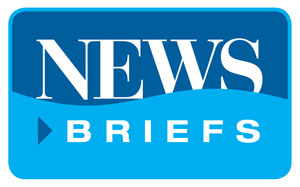A sewer overflow into a creek in The Dalles, Oregon, was caused by vandals plugging a pipe, according to Columbia Gorge News.
A routine inspection uncovered the problem in late September, as city workers found a lock had been broken and vandals had thrown rocks and concrete chunks into a manhole, which caused a clogged pipe and a sewage overflow into Mill Creek and the Columbia River.
Hawaii DOH Fines Navy, Orders WWTP Repairs
The Hawaii Department of Health recently issued a Notice of Violation and Order to the U.S. Navy to address a myriad of deficiencies at the NAVFAC Hawaii Wastewater Treatment Plant near Pearl Harbor. Numerous operation and maintenance issues led to repeated discharges of untreated or partially treated sewage to state waters.
The DOH assessed an $8,776,250 penalty based on 766 counts of discharging pollutants in exceedance of permit limits, 17 counts of unauthorized bypass, and 212 counts of operation and maintenance failures. The department is ordering corrective actions to address critical violations.
“The Navy’s failure to properly operate and maintain this wastewater treatment plant led to the pollution of state waters,” says Deputy Director of Environmental Health Kathleen Ho. “We are taking action to protect our state’s water resources and to hold the Navy accountable to make critical repairs and prevent a potential catastrophic failure of the facility.
EPA Announces $315 Million WIFIA Loan for Nashville Water Plant
The U.S. Environmental Protection Agency recently announced a $315 million Water Infrastructure Finance and Innovation Act loan to Metro Water Services in Nashville, Tennessee, to help it modernize its infrastructure to provide safe, reliable drinking water to its growing service area.
“Metro Water Services is investing in their city’s future by expanding drinking water capacity and increasing resiliency – all while creating jobs and saving ratepayers money,” says EPA Assistant Administrator for Water Radhika Fox. “This WIFIA loan will fund the installation of a new filtration to address vital emerging contaminants, like PFAS, so that drinking water is safe for every person in Nashville.”
The project will modernize two aging treatment plants that are increasingly subject to flood risk and need to accommodate growing demand for drinking water. Metro Water Services will install a new filtration system to address emerging contaminants, including per- and polyfluoroalkyl substances (PFAS) and pharmaceuticals. Additionally, Metro Water Services will undertake a series of other improvements that will increase overall treatment capacity by 50%, mitigate flood risk, add finished water storage capacity, and protect against power failures by installing generators as a backup power source.






